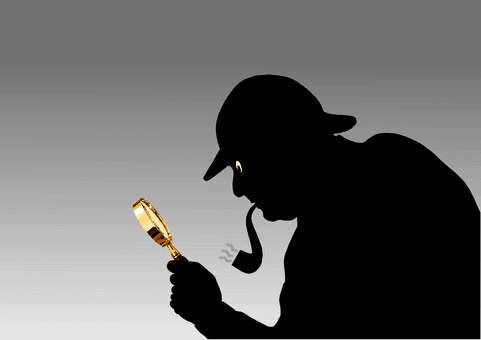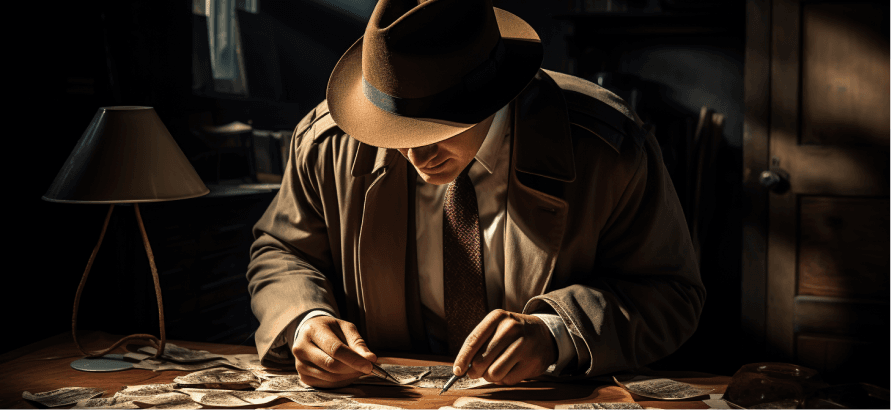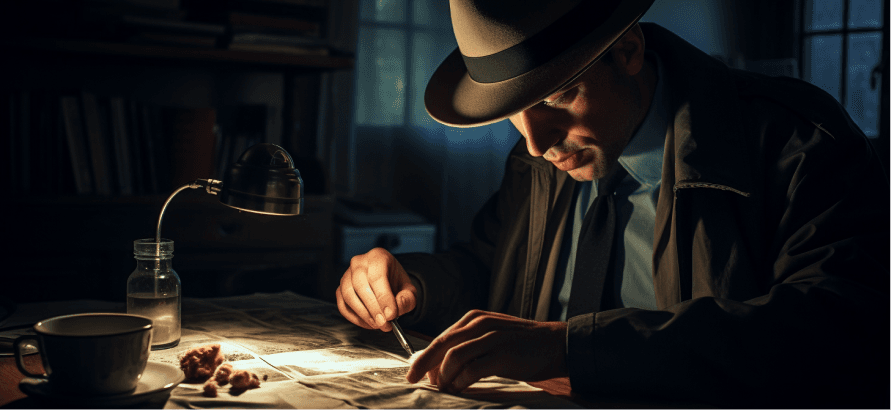How to think like a detective
Curated from: psyche.co
Ideas, facts & insights covering these topics:
9 ideas
·133K reads
1.5K
16
Explore the World's Best Ideas
Join today and uncover 100+ curated journeys from 50+ topics. Unlock access to our mobile app with extensive features.
Benefits of thinking like a detective
Clear thinking is essential for every aspect of life, yet many of us have not really learnt how to think and make safe judgments under pressure.
When you learn to think like a detective, you can gain an advantage in the following areas:
- It can help you think sharper and more creative.
- It can make you a better listener that is less judgmental.
- It can help you solve everyday problems.
3.99K
26.3K reads
Common biases when solving problems
We tend to solve problems in superficial ways. When we make everyday decisions, our mind often only weighs the immediate information so that it can build a coherent story, even if the story is incomplete or unreliable.
- WYSIATI, or "What you see is all there is" refers to the fact that we usually make our judgments according to the information we have available, even if the information is incomplete.
- Confirmations bias compounds WYSIATI. We tend to find more evidence to support our current belief.
3.76K
20.3K reads
How to make a good decision
Expert detectives have two main qualities:
- Detached involvement
- The ability to keep on asking questions
Good investigators don't make quick judgements. They know that their mind will try to convince them that their first impression is right. Instead, they force themselves to walk away from a problem they want to solve. This can help when making important life decisions where it would be dangerous to jump to conclusions, such as buying a new home, hiring a new employee or planning a career move.
3.96K
17K reads
Embrace the investigative mindset
- Assume nothing
- Believe nothing
- Challenge and check everything
It is hard to resist our automatic assumptions and our need for closure. Therefore, always ask yourself what you do know and what you don't know. Remind yourself that correlation does not imply causation. To help find the truth, try to disprove your conclusions.
4.22K
16.3K reads
Identify all the possible explanations
The favoured approach is not deductive logic, which is reasoning based on known facts, but abductive logic, which identifies the best possible explanation in the absence of complete knowledge. Doctors make use of abductive reasoning. They are given a set of symptoms and diagnose on what would best explain most of the symptoms.
Always create a short outline of all the possible alternative explanations you can think of. Then plan how you will test your different reasons.
3.72K
13.1K reads
Test the alternative explanations to narrow your investigation
Use a systematic approach to eliminate as many explanations as possible through falsification.
- Collect the available information.
- Check the facts for accuracy and relevancy.
- Connect the dots. Do different sources say the same?
- Construct all possible solutions.
- Consider what information you need the most to test your remaining hypothesis.
- Consult with somebody you trust to help narrow the scope of your investigation.
3.85K
11.6K reads
Use a mind map to keep track of the possibilities
When constructing alternative options, you may find that you will gather more possibilities than you perhaps thought of in the beginning. To assist our minds, we need practical methods and information-handling tools to keep track. This will reduce the risk to jump to conclusions.
A mindmap or matrix can help to create transparency and allow for a second opinion of your ideas. With every bit of new information, mark on your matrix what the implications are for each hypothesis.
3.51K
9.41K reads
Recruit a critical friend
We will always forget something or not have all the facts. That's why an open-minded and critical friend can be indispensable.
Evidence and new perspectives can be found where you least expect them. It is essential to hold back your own opinion, ask open-ended questions, and use silence and active listening techniques.
3.43K
9.48K reads
Thinking like a detective takes practice
Whether you have to work out why a product launch failed, why your kid is struggling at school or why your smartphone has stopped working, it is essential to think more systematically.
But you won't always know everything and perhaps won't ever know. If you learn how to write down your understanding systematically, you'll increase the chance of finding a simple solution and avoid blunders. Practice can help to sharpen your inner detective and improve decision-making.
3.47K
9.85K reads
IDEAS CURATED BY
Avery B.'s ideas are part of this journey:
Learn more about personaldevelopment with this collection
How to find purpose and meaning in life
How to cultivate gratitude
Techniques for managing negative thoughts
Related collections
Similar ideas
8 ideas
5 ideas
8 ideas
Read & Learn
20x Faster
without
deepstash
with
deepstash
with
deepstash
Personalized microlearning
—
100+ Learning Journeys
—
Access to 200,000+ ideas
—
Access to the mobile app
—
Unlimited idea saving
—
—
Unlimited history
—
—
Unlimited listening to ideas
—
—
Downloading & offline access
—
—
Supercharge your mind with one idea per day
Enter your email and spend 1 minute every day to learn something new.
I agree to receive email updates



